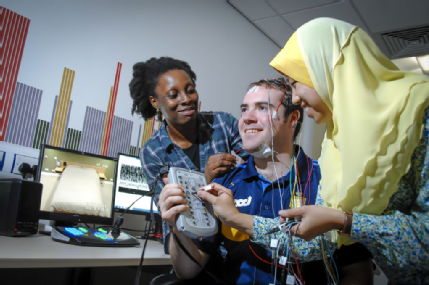Warwick investigates sleeping habitats with new Lab
Warwick University has constructed a sleep laboratory in order to research problems such as insomnia and investigate people’s sleeping habits.
The aim of the initiative is to develop treatments for sleep problems.
Located in the University’s Department of Psychology, the researchers involved are interested in the science and clinical aspects of sleep and pain as well as the relationship between sleep and health.
An overnight sleep study, known as a polysomnography, monitors body functions such as brain waves, heart rate, leg movements and breathing during sleep.
The participant has electrodes placed on their body to detect brain waves and activity. Belts are wrapped around the chest and abdomen to record breathing and a probe is placed on the fingertip to monitor the heart rate.
The Coventry Telegraph wrote that the room looks more like a hotel suite than a science lab with its double bed and bathroom. However, it is designed this way for researchers to make a thorough investigation into debilitating sleep problems, including interrupted sleep as a result of chronic pain.
Scientists in a room next to the laboratory monitor the person whilst they are asleep, recording their brain activity to help understand and develop treatments for sleep problems.
Dr Nicole Tang, principle investigator of the project and part of the University’s Department of Psychology said: “Chronic pain and insomnia are two common but disabling health problems.
“As these health problems increase with age, they present a huge challenge to the healthcare system of our ageing society. Warwick’s new sleep lab is well-positioned to address this challenge through developing new treatments and understanding”.
The project will also enable researchers to make investigations into sleep-related events, such as nightmares and how they are linked to bullying and mental health.
Researchers are currently looking for participants to take part in the sleep studies. They are aiming to test adults who regard themselves as both good and bad sleepers. They hope to encourage insomniacs as well as those who do not suffer from sleep problems to get involved.
The process generally involves completing certain tasks and questionnaires and spending a couple of nights in the lab, although specifics vary depending on which study is taking place.
Professor Dieter Wolke, from the Department of Psychology explained: “The sleep laboratory will help to investigate how experiences during the day, such as being bullied, affect sleep and dreams, or how nightmares or night terrors may give us clues to mental health problems.”

Comments